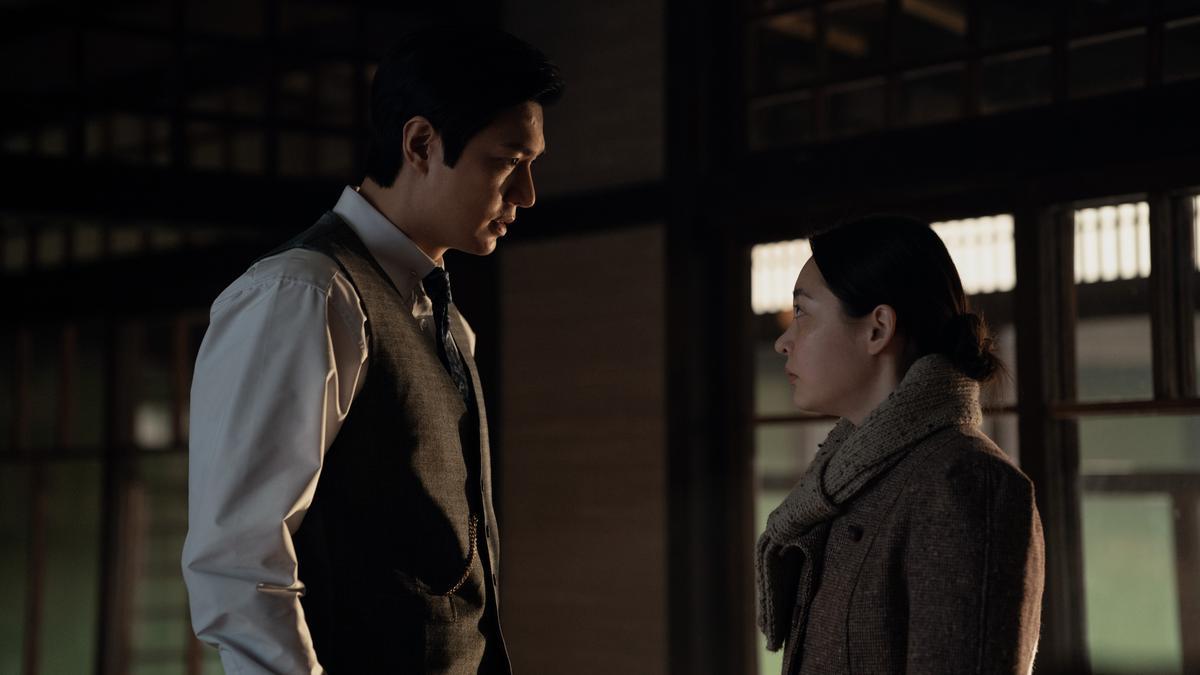
Early on in the premiere episode of the second season of Pachinko, viewers are met with a chilling visual: American fighter planes dropping pamphlets urging the residents to petition the emperor to “halt this brutal war”. The year is 1945, and in Osaka, the shadow of the Second World War and an imminent bombing cast a heavy pall over daily existence. For Sunja and her small family, this pervasive sense of uncertainty adds a distinct layer of tension.
Based on the best-selling acclaimed novel by Min Jin Lee, the first season of Pachinko premiered in 2022. The eight-episode series deviated from the book’s linear narrative, opting instead to oscillate between the 1940s, chronicling Sunja’s life in Korea and Japan during World War II, and 1989, where the story follows her grandson Solomon Baek as he returns to Japan from New York for a financial assignment.
In the initial season, we observed Sunja grappling with an unexpected pregnancy and adjusting to life in Osaka after fleeing Japanese-occupied Korea with her husband, Baek Isak (played by Steve Sanghyun Noh). Years have advanced since Isak’s imprisonment for aiding laborers in their fight for fair wages, and the burden on Sunja’s shoulders has significantly increased. Her brother-in-law, Yoseb (portrayed by Han Joon-woo), is now laboring in a Nagasaki factory, and alongside her sister-in-law Kyunghee (played by Jung Eun-chae), Sunja is deeply troubled by the need to feed her children worm-infested rations.
“I am good at selling,” declares Sunja with steely resolve before venturing into the perilous black market to sell rice wine illegally, reflecting the harsh realities many faced during wartime survival. This scene is an illustrative reminder of the resilience and resourcefulness required in such dire times.
Flashing forward to the late 1980s, Solomon’s father, Mozasu (played by Soji Arai), is preparing to unveil a flashy new Pachinko Parlour. Meanwhile, Solomon himself is absorbed in pulling together investors for a new venture, having left his previous firm at the end of the first season after empathizing with a senior Korean immigrant’s refusal to sell her land, thus derailing a business deal.
A novel as broad and expansive as ‘Pachinko’ demands meticulous and almost leisurely unfolding on-screen, a task the first season accomplished beautifully. Amid an era where many shows face the risk of not being renewed, Pachinko’s second season maintains this unhurried yet compelling pace. The opening episode meticulously details how life has changed for the main characters following a time jump.
Sunja’s sense of helplessness and unyielding determination to provide for her sons is brought vividly to life by the talented Minha Kim.
. Sunja’s sons, Noa and Mozasu, played by Kim Kang-hoon and Eunseong Kwon respectively, bring a fresh dynamic to the narrative. Mozasu, full of energy and eagerness to tackle his adversaries, is depicted in a scene practicing government-mandated drills for invaders. Conversely, Kim Kang-hoon’s portrayal of Noa is one of subdued heaviness, as he grapples with the discrimination faced by zainichis (Koreans living in Japan).
In 1989, Solomon encounters a racially-charged outburst from a Japanese bakery owner against his grandmother Sunja (portrayed by Yoon Yuh-Jung). Solomon’s retort, “I’m from Yale University,” underscores the persistent yet evolving nature of racial and social issues across the family’s generations. Jin Ha portrays Solomon as a character constantly teetering on the edge, a ticking time bomb ready to explode. His desire for a fresh start and his professional ambitions promise an intriguing narrative arc for the season, especially since his story no longer adheres strictly to the book.
The first season also delved into the character of Koh Hansu, a fish broker with powerful connections whose relationship with Sunja catalyzed many of the story’s events. Lee Min-ho, in a career-best performance, depicts Hansu’s backstory against the backdrop of the 1923 Great Kanto Earthquake. Hansu remains a menacing figure, watching over Sunja and her sons from the shadows.
Showrunner Soo Hugh has often emphasized the universality of Pachinko, a narrative weaving together themes of love, loss, grief, and survival across generations. One of the series’ significant strengths is its ability to avoid indulgent melodrama, maintaining a restrained yet profoundly moving storytelling approach. While the scale of the story is immense, Pachinko’s solemn yet deeply affecting narrative smoothly transitions into its second season with the premiere episode. This promising start leaves much anticipation for the following seven episodes.
The second season of Pachinko is currently streaming on Apple TV+ with new episodes releasing every Friday.












